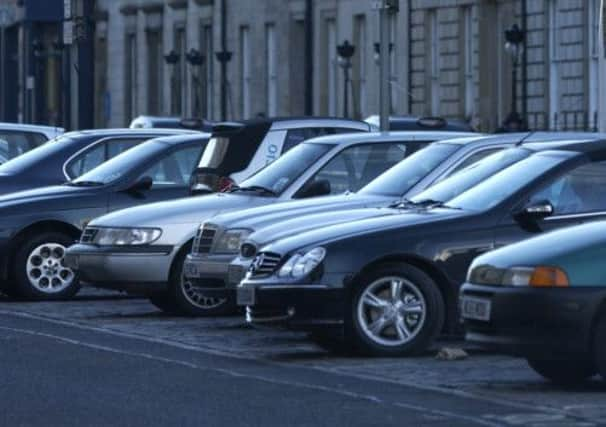Parking ‘biggest cause of rows with neighbours’


The poll by the UK’s biggest motoring group found such disputes accounted for up to one-third of residents’ quarrels.
The Automobile Association said the main problem between neighbours is blocking access to a home or drive, then by parking outside someone’s house.
Advertisement
Hide AdAdvertisement
Hide AdSuch bugbears outweighed other annoyances, such as noise, boundary disputes, trees and hedges, building work, pets and children.
The survey found that more than one in four of the 23,000 AA members questioned had fallen out with their neighbours.
Parking problems accounted for 32 per cent of disputes.
These broke down into four categories: blocking access to a property or driveway (13 per cent of all disputes), parking outside a neighbour’s house (12 per cent) and using a neighbour’s parking space (7 per cent).
A further 1 per cent of disputes were over car repairs or maintenance. After parking, noise was the biggest gripe, accounting for 23 per cent of rows.By contrast, the five next-biggest residential flashpoints were less prevalent: boundaries accounted for 11 per cent, trees and hedges 8 per cent, building work 6 per cent, pets 5 per cent and children 3 per cent.
However, overall, 26 per cent of neighbours in Scotland had fallen out with each other compared to 30 per cent in Yorkshire, Humberside and Wales – the highest rate in the UK.
A previous AA/Populus poll showed 91 per cent of house-hunting AA members looked for a new home with off-street parking – second only to the desire for a safe neighbourhood.
AA Home Emergency Response head Tom Stringer said: “Parking traumas are less down to the popularity of cars than the need for both partners to work and be independently mobile.
“Young workers group together in more affordable accommodation and often have their own vehicles.
Advertisement
Hide AdAdvertisement
Hide Ad“As a result, necessity grows a neighbourhood’s car population, squeezes available space, ratchets up friction and, like rats in a barrel, neighbours can lash out at each other.”
The AA said off-road parking spaces could increase the value of a property by 8 per cent, while some residents’ parking permits cost £785 per year. Residents pay up to £371 in Edinburgh and £250 in Glasgow.
Neil Greig, policy and research director for the Institute of Advanced Motorists, said: “For many people, the car is the second most expensive item they will ever own [after their home] and they often feel the need to keep it close by so they can protect their investment.”
He added: “The rats analogy is quite apt as any animal caged up in too small an area will eventually react violently, and all too often this is the case on urban streets with too few spaces to meet demand, and [parking] permits issued without any guarantee of a space.”
Drivers pay £1.3bn a year needlessly for parking
DRIVERS are wasting up to £1.3 billion a year because they do not have the correct change for pay and display car parking machines, a report has revealed.
Scots pay the most for wasted parking time of motorists everywhere outside of London in a bid to avoid hefty fines – racking up a typical bill of £136 of unneccessary parking fees a year – or £2.61 a week.
The UK average amounts to just £2.19 a week, but the typical driver north of the Border forks out for more than 40 hours a year which they do not need – more than three-quarters of an hour extra every week, according to the research from insurer Direct Line. The insurance firm has called for car parks to introduce machines where drivers pay as they leave – rather than prepay meters – in a bid to stamp out the problem.
“Overpaying by £2.19 a week doesn’t sound like a huge amount to pay for peace of mind, but when you work out how much drivers as a whole are wasting, it really puts it in perspective,” said Rob Miles, head of motor at Direct Line.
Advertisement
Hide AdAdvertisement
Hide Ad“We are calling for more car parks to have payment on departure machines so that motorists only have to pay for the time they have used.”
The study shows that 47 per cent of motorists overpay to avoid potential fines when they are caught short of change, while of those motorists who run the risk of parking without paying, one in four has had a parking fine in the past three years – £450 million in charges.
Young drivers are particularly susceptible as 18-34 year olds overpay by £3.25 a week – £1.06 above the average.
JANE BRADLEY